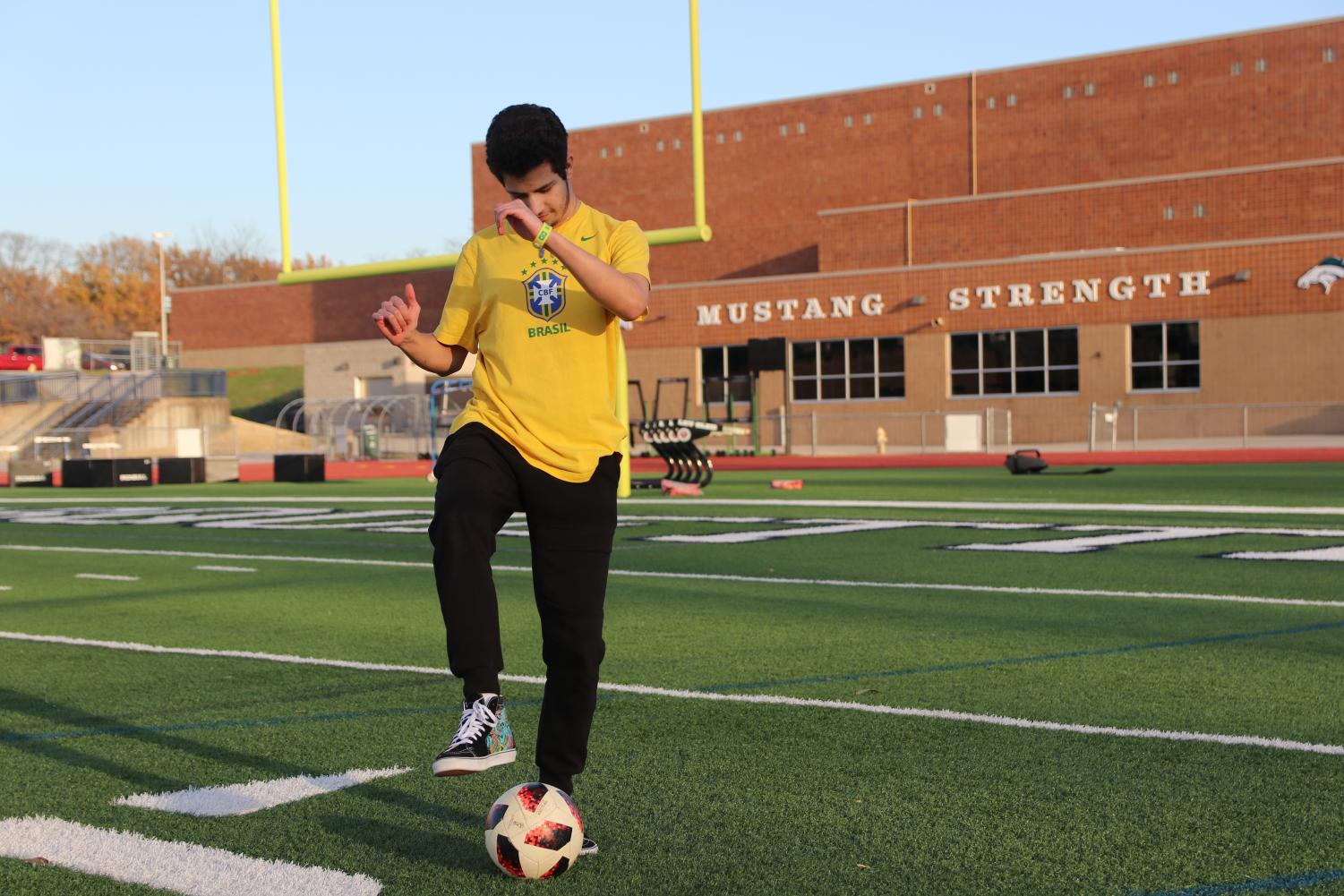World Cup Evokes Pride
Media by Shyam Punnachalil
Chloe Kang, senior, dribbles the ball down the field. While Kang does not play competitive soccer, she enjoys watching the South Korean national team play in the FIFA World Cup. “It’s just great seeing Korea represented as a whole on the world stage,” Kang said.
Having lived in Brazil for five years, Lucas Tourinho, sophomore, has always enjoyed the huge soccer presence in the country.
“For Brazilians, soccer is in our genes. In Brazil, you literally don’t go to school. Whenever your country plays, you stay at home, including teachers and faculty,” Tourinho said. “That is how big the World Cup is to us Brazilians.”
This year’s FIFA World Cup started on Sunday, Nov. 20 and ends on Sunday, Dec. 18.
Tourinho said he supports Brazil in the World Cup because of the country’s historical success in soccer.
“Brazil stands out because we’ve won five World Cups, almost winning three in a row,” Tourinho said. “We’re the only country to actually keep the trophy from the tournament.”
UNITY
Nolan Henry, senior, supports the U.S. Men’s National Team (USMNT) because of his love for American soccer and having lived in the U.S. for the majority of his life.
“I just love seeing them play and represent the country,” Henry said. “The new and younger team that we have this year have competed really well against big teams and it’s great to see.”
With Americans being polarized on many political issues as of recent, Henry said the U.S. participating in the World Cup brings people together.
“It just pushes the bad stuff aside and brings us together with soccer,” Henry said.
Chloe Kang, senior, is from South Korea and said she is proud to see the South Korean national team perform.
“I do hold lots of value from my culture, and it’s just great to see the South Korea team represent us on the world stage, as a whole,” Kang said. “I think nationalism in this sense increases the pride and love for your own country. It brings people together just to play a simple game of soccer.”
Kang said she is appreciative of South Korea’s progress and effort put into this year’s World Cup.
“Even if we didn’t win the World Cup, it was just really great to see us be happy and share happy moments with each other,” Kang said. “The fact that so many people went to Qatar to support South Korea just meant so much to me.”
NATIONALISM
Former MHS social studies teacher Chris Kenny was inducted into the St. Louis Soccer Hall of Fame in 2020 after a career in soccer.
As a former soccer player for the St. Louis Ambush and St. Louis Steamers, Kenny said he always felt honored to represent St. Louisans well during his professional career, just like the players participating in the World Cup.
“The teams I played for had mostly St. Louis players, and I always felt a certain pride and responsibility of how I played, prepared and was the best teammate I can be,” Kenny said.
Kenny said the World Cup gives people a greater connection to their nation.
“You have star players who are typically playing for their clubs, but the World Cup is different in the sense that they are now playing for their country,” Kenny said. “It makes people feel spiritually connected to their country as a result.”
Kenny said nationalism can reach high and bad levels, but sporting bodies like Federation Internationale de Football Association (FIFA), attempt to prevent those issues from getting out of hand by issuing sanctions and punishments against fans who cause problems.
Matthew Nanes, political science professor at Saint Louis University, said nationalism generally is a benefit in the World Cup.
“It’s interesting to me that every four years in the U.S., everyone becomes a soccer fan because of the World Cup, and with that people have a shared sense of identity,” Nanes said.
Nanes said the World Cup bridges gaps between countries across the globe.
“Hosting the games in a place where fans are less familiar with is generally a positive thing,” Nanes said. “The interaction, transparency and media coverage allows visitors to understand more about the host country.”
Your donation will support the student journalists of Marquette High School. Your contribution will allow us to purchase equipment and cover our annual website hosting costs. You may become a PATRON by making a donation at one of these levels: White/$30, Green/$50, Blue/$100. Patron names will be published in the print newsmagazine, on the website and once per quarter on our social media accounts.

Shyam Punnachalil, senior, is an Associate Producer for MHSNews and a Sports Editor The Marquette Messenger. This is Shyam's third year in MHSNews, and...








